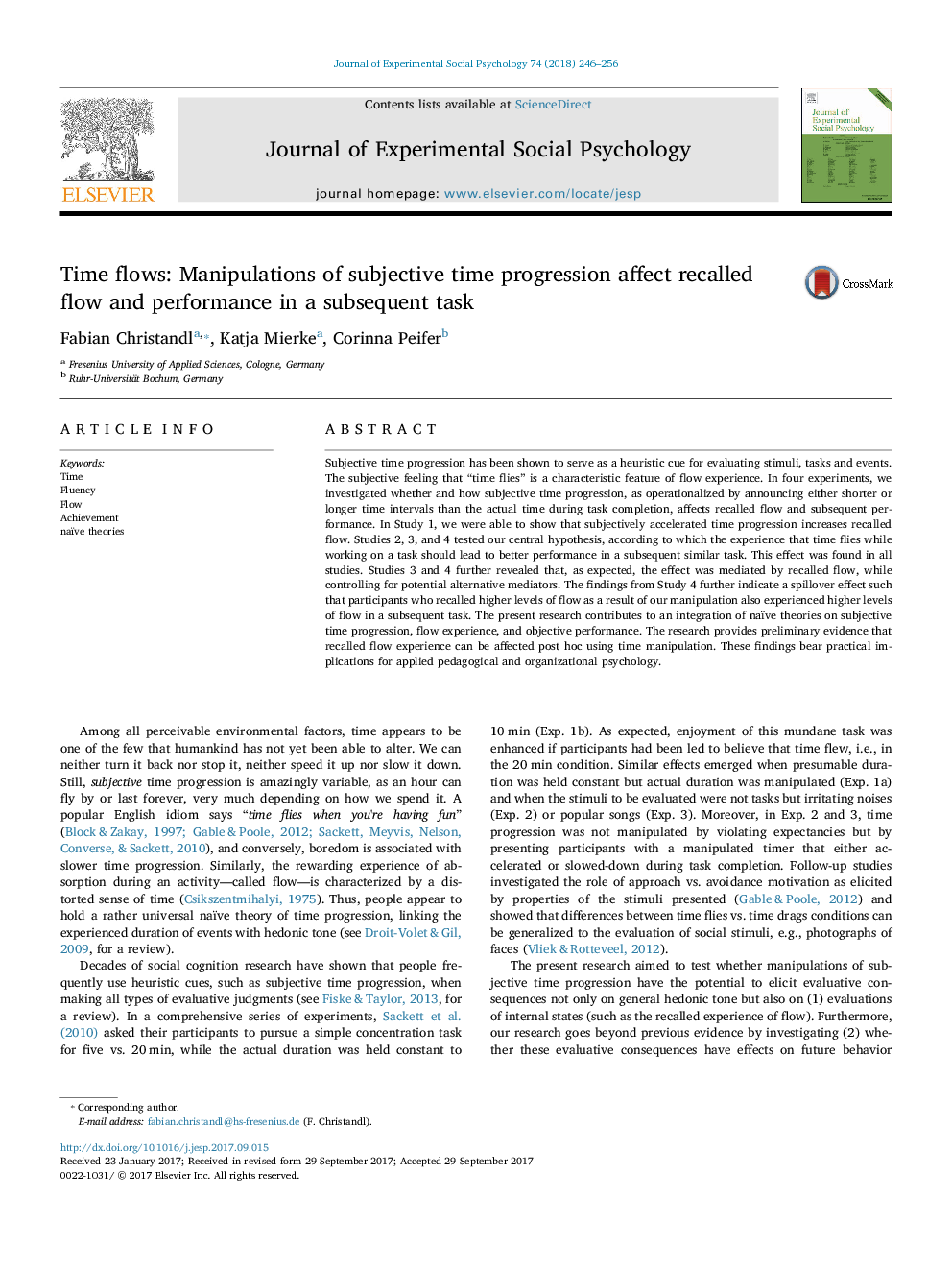ترجمه فارسی عنوان مقاله
جریانهای زمانی: دستیابی به پیشرفت زمان ذهنی بر جریان و عملکرد یاد شده در یک کار بعدی تاثیر می گذارد
عنوان انگلیسی
Time flows: Manipulations of subjective time progression affect recalled flow and performance in a subsequent task
| کد مقاله | سال انتشار | تعداد صفحات مقاله انگلیسی |
|---|---|---|
| 122698 | 2018 | 11 صفحه PDF |
منبع

Publisher : Elsevier - Science Direct (الزویر - ساینس دایرکت)
Journal : Journal of Experimental Social Psychology, Volume 74, January 2018, Pages 246-256

